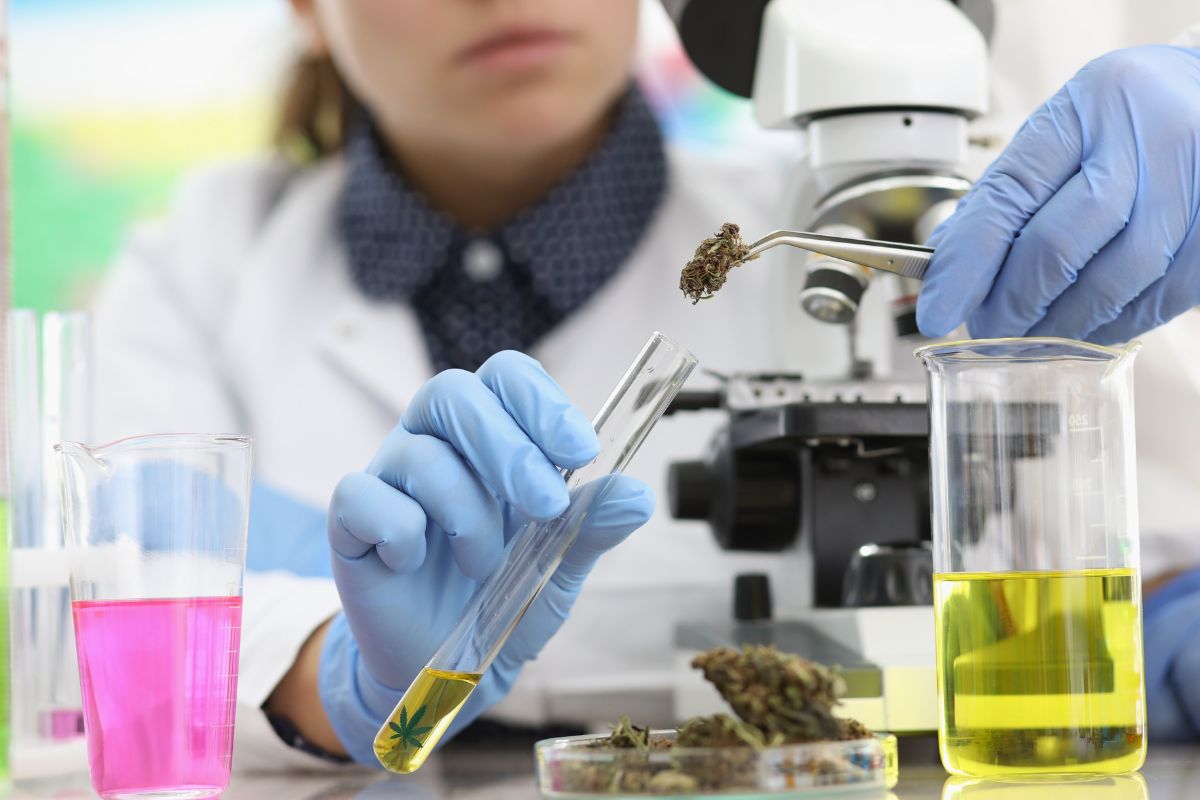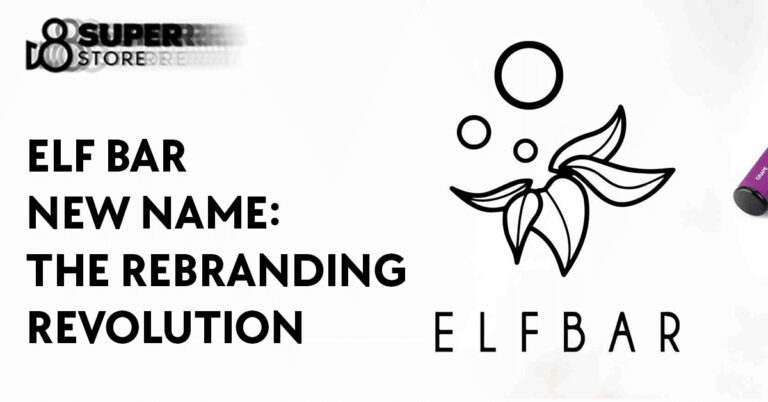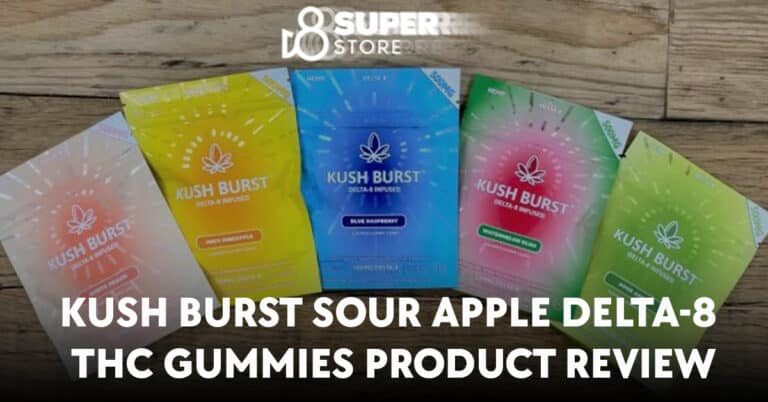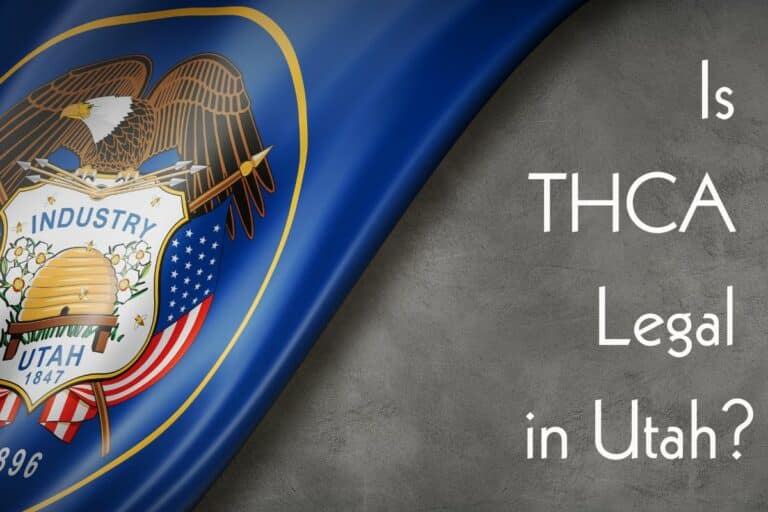Is Delta-8 THC Legal in Massachusetts?
Deciphering the regulations surrounding Delta-8 THC in Massachusetts is akin to uncovering a concealed key within the intricate maze of marijuana laws. Delta-8 THC, closely related to the component in marijuana that propels you on a spacey adventure, has soared in popularity. Currently, it teeters on the legal threshold within the hemp domain.
Delta-8 is synthesized from CBD derived from hemp, and since the 2018 Farm Bill federally legalized hemp containing less than 0.3% Delta-9 THC, products featuring Delta-8 began to surface, claiming legality under this legislation. However, you should be aware that states have the autonomy to regulate cannabinoids, and Massachusetts has its specific laws regarding THC and related substances.
- Delta 8 Legal Landscape in Massachusetts
- Understanding Delta 8 THC
- The Impact of the 2018 Farm Bill
- State vs Federal Regulations
- Buying Delta 8 in Massachusetts
- Legal Considerations for Consumers
- Comparison With Other Cannabinoids
- Assessing Product Quality and Safety
- Impact on Massachusetts Cannabis Industry
In Massachusetts, the nuances of cannabis laws may be detailed and complicated, impacting your access to Delta-8 products. The Commonwealth considers all forms of tetrahydrocannabinol to be controlled substances unless specifically excluded by law. Therefore, while hemp-derived CBD products are legal, the status of Delta-8 THC can be quite complex and may change as state regulations evolve.
Delta 8 Legal Landscape in Massachusetts
Your understanding of Delta 8’s legal status in Massachusetts hinges on both state law and federal law. Following the 2018 Farm Bill, hemp-derived compounds such as CBD became federally legal, providing they contain less than 0.3% Delta 9 THC. Delta 8 THC, although often derived from legal hemp, occupies a more complex legal space.
Massachusetts state law mirrors federal regulation in many ways, but when it comes to Delta 8’s legality, it’s essential to note the nuances. Hemp-derived products are generally permissible; however, the state’s approach to intoxicating compounds may affect Delta 8 products specifically.
Here’s what you need to know about Delta 8 in Massachusetts:
- Federal Law: Recognizes Delta 8 as legal if derived from hemp with THC levels not exceeding the 0.3% threshold.
- 2018 Farm Bill Compliance: Massachusetts abides by this federal guideline but scrutinizes the psychoactive nature of Delta 8.
- State Legislation: The state has not explicitly banned Delta 8 THC but exercises caution regarding its psychoactive properties.
Although Delta 8 might be federally legal under the 2018 Farm Bill, your access to Delta 8 products in Massachusetts may still be subject to legal ambiguities given their intoxicating effects. Always confirm the legal status of these products with local authorities to ensure compliance with current regulations.
Understanding Delta 8 THC
Delta 8 THC, short for delta-8-tetrahydrocannabinol, is a psychoactive compound found in the Cannabis sativa plant, of which hemp and marijuana are two varieties. As an isomer of delta-9 THC—often referred to simply as THC, which is the most abundant psychoactive component in cannabis—delta 8 THC has a similar chemical structure but with a few notable differences.
The structure of delta 8 THC features a double bond on the 8th carbon chain of the molecule, whereas delta-9 THC has this bond on the 9th carbon chain. This slight variation in the molecular structure implies a difference in the pharmacological effects. Known for producing a milder and less intoxicating high than delta-9 THC, delta 8 THC is still psychoactive, but many users report it as being less anxiety-provoking.
Delta 8 THC may be derived from either hemp or cannabis. The legality of delta 8 THC is complex and varies by jurisdiction, though it’s notable that hemp-derived cannabinoids in the U.S. became federally legal under the 2018 Farm Bill, as long as they contain less than 0.3% delta-9 THC. However, the legal status of delta 8 THC itself remains in a gray area due to its psychoactive nature and the fact that it can be synthesized from CBD, which is legal.
When consuming delta 8 THC, it’s important to understand it is a potent cannabinoid, and its effects haven’t been studied as extensively as those of delta-9 tetrahydrocannabinol. Always check your local laws and regulations regarding the use of delta 8 THC and related cannabinoids.
| Compound | Psychoactive | Double Bond Position | Often Derived From |
| Delta 8 THC | Yes | 8th Carbon Chain | Hemp / Marijuana |
| Delta 9 THC | Yes | 9th Carbon Chain | Marijuana |
Remember, as delta 8 THC can induce psychoactive effects, exercise caution if you choose to use it. Always prioritize safety and compliance with local regulations.
The Impact of the 2018 Farm Bill
The 2018 Farm Bill significantly altered the landscape for hemp-derived products in the United States. Prior to its enactment, hemp plants and their derivatives were classified as controlled substances. This bill, however, removed hemp, defined as cannabis with a THC concentration of no more than 0.3% on a dry weight basis, from the list of federally regulated substances.
Your understanding of hemp’s legal status was clarified, as Congress explicitly distinguished hemp from marijuana. This meant that at the federal level, hemp and its derivatives became legal to cultivate, possess, and sell. Delta-8 THC, a cannabinoid derived from legally grown hemp, occupies a gray area due to this de-scheduling.
- Legality: Following the passing of the bill, Delta-8 THC derived from hemp was not explicitly illegal at a federal level.
- Regulation: Despite Delta-8 THC’s rising popularity, its regulation does not fall squarely within the old framework of controlled substances due to its sourcing from hemp.
It’s crucial to recognize that while the 2018 Farm Bill sets a federal precedent, each state retains the right to enact its own laws and regulations regarding hemp-derived compounds. Consequently, the legality of Delta-8 THC can vary from one state to another, and it is seated in a complex legal context where state legislation can supersede federal allowances.
For Massachusetts residents, the interpretation of these federal guidelines in state law determines your legal standing regarding Delta-8 THC. Given the evolving nature of cannabis laws, you should stay updated on both federal and Massachusetts-specific legislation to navigate this legally intricate area.
State vs Federal Regulations
In understanding the legality of Delta 8 THC in Massachusetts, you need to consider both state and federal laws. Massachusetts laws may diverge from federal guidelines, affecting the availability and regulation of hemp-derived products within the state.
Massachusetts Regulations on Delta 8
In Massachusetts, Delta 8 THC falls under a gray area. As you navigate these regulations, it’s important to note that Bill H.4001 has not specifically addressed Delta 8. However, since this cannabinoid is synthesized from legal hemp, its status remains uncertain without explicit state legislation. So far, Massachusetts law has not differentiated Delta 8 from other THC compounds in the cannabis industry, potentially subjecting it to the same regulations as Delta 9 THC found in marijuana.
Federal Position on Delta 8 and Hemp Products
At the federal level, the legal landscape is distinct. Hemp products, by definition, contain less than 0.3% Delta 9 THC. The 2018 Farm Bill removed hemp from the definition of marijuana, thereby de-scheduling it as a controlled substance. However, this legislation does not directly address synthetically derived cannabinoids, leaving a loophole for substances like Delta 8. As hemp-derived, Delta 8 is federally legal under this definition, but its synthetic alteration raises questions about its conformity to the Farm Bill’s intent. As you’re looking into the legality of Delta 8, it’s crucial to stay informed about ongoing federal regulation and interpretation by agencies such as the DEA.
Buying Delta 8 in Massachusetts
When you’re looking to buy Delta 8 products in Massachusetts, it’s important to understand the legal landscape and where to find these items. As of the information available, Delta 8 THC is a cannabinoid similar to CBD, and thanks to the 2018 Farm Bill, hemp-derived cannabinoids, including Delta 8 THC, are federally legal. However, state laws can differ.
To ensure you’re purchasing legally, always check the latest state regulations before buying. Whether you are shopping in physical stores or prefer the convenience of online shopping, knowing your options helps in making an informed decision.
Online Shopping Advantages
- Wider product selection: Online retailers typically offer a broader range of Delta 8 products.
- Reputable brands: You have the opportunity to research and select from well-known and trusted manufacturers.
- Consumer reviews: Access to customer feedback can guide you to high-quality products.
Finding Reputable Sources
For a safe purchase, ensure you buy from reputable sources that provide product lab testing results to verify the contents and compliance of their Delta 8 offerings. Many CBD products stores also stock Delta 8 due to their similarities, so these can be a good place to start.
When buying online, always check for:
- Third-party lab results
- Clear product labeling
- Comprehensive product information
Remember, while you do have access to an extensive range of Delta 8 products, your safety and legality should always come first. Shop smartly and enjoy the selection available to you in Massachusetts responsibly.
Legal Considerations for Consumers
When considering the legality of Delta-8 in Massachusetts, you as a consumer should be aware of several important factors that pertain to medical use, possession limits, consumer safety, and required lab reports for product verification.
Medical Use: In Massachusetts, medical marijuana is legal for patients with a qualifying condition and a valid medical marijuana card. Delta-8 THC products, which are chemically different from Delta-9 THC found in marijuana, may also be available to you if you’re a registered patient.
Possession Limits: The state of Massachusetts permits the possession of up to 10 ounces of cannabis in your home. When considering Delta-8 products, be mindful that this limit includes all forms of THC.
- For products containing Delta-8:
- Home: Up to 10 ounces are allowed.
- Outside of home: The public possession limit is 1 ounce of flower or 5 grams of concentrate.
Consumer Safety: It’s essential to purchase Delta-8 products from reputable sources. In Massachusetts, all cannabis products including Delta-8 must comply with consumer safety regulations.
Lab Reports: For assurance of safety and legality, reliable vendors provide lab reports. These reports should indicate the product’s THC content, ensuring it conforms with Massachusetts regulations for Delta-8 THC.
Legality in Massachusetts: Understanding the state’s stance on Delta-8 is crucial. Currently, Delta-8 THC is legal in Massachusetts within regulatory frameworks meant to protect consumers like you. Always check the most recent laws to make sure the product you are purchasing remains compliant.
It is advised to stay informed about the local regulations as they can evolve. Remember, when you consume Delta-8 products, you are responsible for doing so within the legal boundaries set by the state of Massachusetts.
Comparison With Other Cannabinoids
When exploring the legal landscape of delta-8 THC in Massachusetts, you may want to understand how it compares to other cannabinoids. Delta-8 THC, similar to delta-9 THC, is a form of tetrahydrocannabinol, but with subtle chemical differences that impact its legal status and psychoactive effects.
Chemical Structure
Delta-8 and delta-9 are both forms of THC, with molecular structures that are nearly identical. The key difference lies in the placement of a double bond in their carbon chains: delta-8 has the double bond on the 8th carbon, whereas delta-9 has it on the 9th.
Psychoactive Effects
- Delta-9 THC: More potent, traditional THC found in marijuana.
- Delta-8 THC: Less potent, known for a milder, clearer high with reduced anxiety.
- Delta-10 THC: Similar to delta-8, reportedly offers a lighter high.
Legality in Massachusetts
While delta-9 THC is legal in Massachusetts for both medical and recreational use, the legal status of delta-8 THC remains more complex due to its potential derivation from hemp (which is federally legal under the 2018 Farm Bill).
CBD vs. Delta-8 THC
- CBD (Cannabidiol): Non-psychoactive, doesn’t produce a high, widely accepted for medical use.
- Delta-8 THC: Psychoactive to a lesser degree than delta-9, existing in a gray legal area.
Understanding these nuances can help you navigate the legalities surrounding the use and possession of delta-8 THC in Massachusetts. Comparing delta-8 THC with other cannabinoids shows a spectrum of effects and legal considerations, influenced by the structural and psychoactive properties of each compound.
Assessing Product Quality and Safety
When navigating the market of hemp-derived products in Massachusetts, particularly those containing delta-8 THC, your safety is paramount. Start by ensuring any tinctures, edibles, or vape cartridges have clear lab reports, which reputable brands should readily provide. These reports are critical to verify the concentration of delta-8 THC and confirm the absence of harmful contaminants.
Lab Reports:
- Potency: Check for the exact delta-8 THC levels.
- Purity: Look for analysis on pesticides, heavy metals, and solvents.
Especially with vape cartridges, which can pose inhalation risks, ensure the product meets safety standards for contaminants specific to this form of consumption.
Considerations for Vape Safety:
- Check for VG/PG (Vegetable Glycerin/Propylene Glycol) ratios.
- Ensure no harmful cutting agents are used.
For edibles, understand that the effects may take longer to present and can vary in intensity. Start with a low dose to gauge your body’s reaction.
Edible Safety Tips:
- Begin with a small serving size.
- Wait to understand your tolerance levels before consuming more.
Reputable brands focus on quality and safety, often backed by customer reviews and transparent practices. Prioritize those committed to your well-being with rigorous testing and clear labeling.
Choosing Reputable Brands:
- Read customer feedback for firsthand accounts.
- Look for companies with a robust commitment to transparency.
In essence, your health and safety should be your guide as you explore the delta-8 space. Stick to products backed by solid evidence of quality, and don’t hesitate to reach out to brands for further clarification on their testing and safety protocols.
Impact on Massachusetts Cannabis Industry
In Massachusetts, the evolving landscape of the cannabis industry includes the emergence of delta-8 THC, a compound that has created a new point of discussion regarding the legal and regulatory frameworks. Your understanding of the industry’s direction is vital as delta-8 THC, derived from legal hemp, interacts differently with existing cannabis laws.
Legal Context: Delta-8 THC products have snaked their way into the marketplace, sometimes exploiting loopholes around cannabis-derived compounds. Massachusetts law currently permits the sale of hemp-derived products. However, delta-8 THC’s legality sits in a grey zone, creating challenges for regulators and businesses.
- Market Response: You may notice that retailers are increasingly stocking delta-8 THC due to its growing popularity and demand. This response points to a diversification in product offerings, which could affect the market dynamics for cannabis products, potentially adjusting customer preferences and impacting prices accordingly.
Tax Implications: Delta-8 THC contributes an intricate layer to taxation. In Massachusetts, like elsewhere, the presence of delta-8 changes the taxation landscape as regulatory bodies attempt to classify and tax it appropriately, altering tax revenue projections for the state.
Industry Adaptation: As you observe the industry, you’ll see that it’s rapidly adapting to the availability of delta-8 THC. Since it’s drawn from hemp, which is federally legal, the impact on local businesses ranges from product innovation to shifts in competitive strategy.
Remember that the long-term effects on Massachusetts’ cannabis industry depend on how legislators and regulators respond to the presence of delta-8 THC. Compliance, enforcement, and consumer safety stand as priorities, all while the robust cannabis industry seeks balanced growth and innovation.
Frequently Asked Questions
When investigating the legality of Delta 8 THC in Massachusetts, it is crucial to understand the specific state regulations, purchasing eligibility, and comparisons with related cannabinoids.
What are the legal restrictions on Delta 8 THC in Massachusetts?
In Massachusetts, Delta 8 THC is legal under state law, but it must comply with existing regulations on hemp-derived products. This means that any Delta 8 products you buy should have less than 0.3% Delta 9 THC to align with federal guidelines.
Can I legally purchase Delta 8 gummies in Massachusetts?
Yes, you can legally purchase Delta 8 gummies in Massachusetts as long as they adhere to the state’s hemp regulations. Ensure that the products are from a reputable source that follows the necessary THC content limits.
Are there any age requirements for buying CBD products in Massachusetts?
In Massachusetts, you must be at least 21 years old to purchase CBD products, which includes those containing Delta 8 THC. This age requirement aligns with the state’s regulations for purchasing adult-use cannabis products.
How does Delta 8’s legality compare to Delta 9 and Delta 10 in MA?
While Delta 8 THC is federally legal and legal in Massachusetts, Delta 9 THC (the primary psychoactive component in marijuana) is also legal for adult use in the state. Delta 10 THC remains in a gray area, much like Delta 8. However, all these cannabinoids must follow the same state-specific regulations.
What should I look for in legal Delta 8 vendors within Massachusetts?
When looking for legal Delta 8 vendors in Massachusetts, ensure they provide lab-tested products that confirm the THC content and purity. Vendors should be transparent about their sourcing and the legality of their products under Massachusetts law.
Are Delta 8 THC products derived from hemp regulated in MA?
Yes, Delta 8 THC products derived from hemp are regulated in Massachusetts. They must meet the same regulatory standards as other hemp-based products, including proper labeling and THC content limits. Always check that the product meets state guidelines before purchasing.







